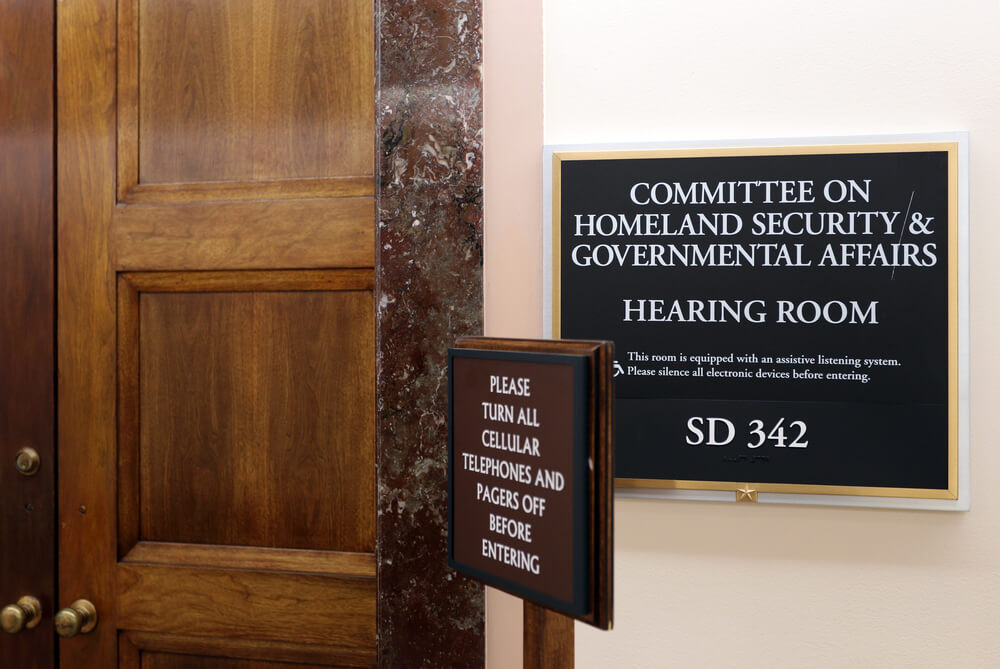The US has recently closed a loophole in its resistance to international corruption by criminalising foreign officials who have solicited and accepted bribes from US companies or citizens.
The law that turned 46 (the Foreign Corrupt Practices Act, or FCPA) got its missing link in mid-December.
So far, this law has sanctioned only American entities proven to have given bribes to foreign officials, but not those on the other side of the corrupt business.
In the US Congress, with the support of both parties, the Foreign Extortion Prevention Act (or FEPA), which criminalises the demand side of international corruption, was adopted on December 14.
Foreign officials who demand and take bribes, directly or indirectly, from US companies or individuals will be under attack.
This law refers to political officials, officials of international organisations, or any person acting in an official or unofficial capacity on behalf of a foreign government or international organisation.
They were not untouchable until now, as the US Department of Justice prosecuted them in corruption cases, but through indirect means - laws against money laundering, international fraud or tax evasion.
Part of national security protection
The new law directly criminalises their corrupt action, which makes it easier for the US authorities to accuse the other party in a corruption case (the one who demands a bribe).
The US is not a pioneer in this practice. It has been lagging behind similar and existing legislation in the UK, Germany, France, the Netherlands, Switzerland and other highly developed countries for years.
However, the US joining this circle means a crucial step towards curbing high level international corruption, given the strength of the US economy, its high competitiveness and its presence in all parts of the world.
The new anti-corruption law was passed as part of the National Defence Authorisation Act, which gives it special authority and makes it part of the national security protection framework.
 The new anti-corruption law was passed as part of the National Defence Authorisation Act, which gives it special authority and makes it part of the national security protection framework
The new anti-corruption law was passed as part of the National Defence Authorisation Act, which gives it special authority and makes it part of the national security protection framework
From a policy standpoint, this is the fulfilment of the Strategy on Countering Corruption of President Joe Biden's administration, which treats international corruption as a threat to US national security.
Bipartisan support for this law confirms that it has even broader support and is permanently a part of the US anti-corruption mechanisms.
Even though the new law does not apply to them directly, US corporations will get protection in their cross-border business with this law as they are frequently the target of bribery requests.
US companies have often lost business abroad and been less competitive because they refused to bribe officials in countries they wanted to invest in because of the old 1977 law (FCPA) that targeted them as bribe payers.
Bribe seekers were encouraged to do so because they operate in kleptocracies, in systems with weak institutions and systemic corruption. Transparency International's annual Corruption Perceptions Index indicates that up to 120 countries worldwide have severe corruption-related issues.
At the same time, a high percentage of those who ask for and receive bribes could count on getting away with impunity. According to an earlier OECD study, only one in 5 government officials who demand bribes are punished in their own country, while the remaining 4 get away with it.
Discouraging global corruption
Because of this, American businesses operating internationally - even in developed economies in the OECD region - face an extremely toxic environment regarding corruption.
Giventhe possibility of a bad reputation amongst international investors and direct investigation by US agencies, the new US law might deter attempts and demands for bribery.
Like some previous ones, the American anti-corruption law has an element of extraterritoriality. It applies to foreign citizens, and based on previous similar experiences, it should be very effective.
The new FEPA will increase the efficiency in combating corruption, not only at the US national level but globally
Some of them, such as the Magnitsky Act or the Foreign Agent Registration Act, have so far served the US government to prosecute foreign nationals for corruption, among other things.
In this respect, the new FEPA will increase the efficiency in combating corruption, not only at the US national level but globally, because it criminalises both parties in an illegal business equally.
The decision of the US Congress will impact the legislation of other states to follow a similar path and incorporate similar anti-corruption solutions into their legislation, as was the case with related regulations, such as the Magnitsky Act.